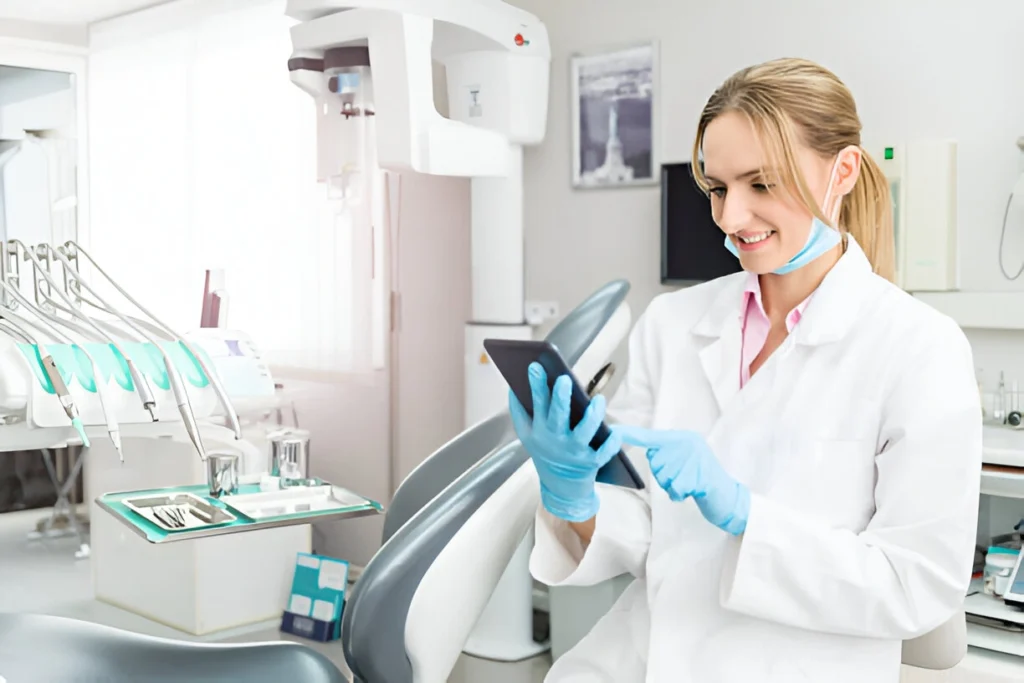The pharmaceutical sector of Bangladesh is expanding at a fast pace, making a significant contribution to the national economy and health system. Bangladesh has more than $3 billion worth of potential market for domestically produced pharmaceutical products, and a huge market for export is also waiting in the USA, Europe, and other countries. Starting a pharmaceutical company is a profitable business.
This complete book is a step-by-step guide for setting up a pharmaceutical company in Bangladesh. You will get a detailed overview of the documentation, legal agreements, bottle filling, label, promotional materials, and much more on how to set up a company. And if you are a potential investor, healthcare practitioner, or entrepreneur, consider this article your roadmap.
What motivates investment in the pharmaceutical sector of Bangladesh?
Rapid Industry Growth
The Bangladesh pharmaceutical industry has been expanding at double-digit growth rates in excess of 10% for the last 5 years. With more than 3000 functional pharmaceutical manufacturing plants across the country, we have attained a level of self-dependency, producing over 98% of what we need.
Export Potential
The country exports drugs to over 150 countries, including regulated markets in the US, the UK, and the EU. The industry is protected under TRIPS (Trade-Related Aspects of Intellectual Property Rights) exemptions until 2033, enabling local manufacturers to produce patented drugs without infringing international laws.
Government Incentives
The Bangladesh government encourages pharmaceutical companies with tax holidays, VAT exemptions, and export benefits. However, the building blocks of manufacturing continue to evolve with specialized industrial zones such as the Active Pharmaceutical Ingredients (API) Industrial Park.
Want to Set Up Your Own Drug Company?
Step 1- Business Plan and Feasibility Study
Business plan – Before doing anything else, write a business plan which should include:
First and foremost, make a business plan that points out:
- Analysis of the market, including demand, competition, and pricing.
- Customer targets: Domestic, export, or both.
- Financial forecasts: Capex, OPEX, a payback.
- An acronym for strengths, weaknesses, opportunities, threats analysis.
Do a technical and business feasibility for a drug company venture.
Step 2 – Company Registration
To do business in Bangladesh, you need to get the following registered:
Registrar of Joint Stock Companies and Firms (RJSC) :
- Name clearance
- Articles of Association
- Submission of Form XII
- Certificate of Incorporation
Trade License:
- Issued by the City Corporation / Municipality.
TIN ( Tax INformation) :
- Necessary for income tax and corporate compliance.
VAT Registration:
- Role to play by NBR.
IRC and ERC:
- Essential for the import of raw materials and export of finished products.
Step 3 - The drug manufacturing license is acquired
Drug Manufacturing: There is only one way for you to do this, and that is by applying for a Drug Manufacturing License, which is issued by the DGDA.
Requirements:
- Application in the proforma as per Annexure-I should be submitted with the following attachments:- I.
- List of proposed products
- Factory layout and design
- Equipment and machinery particulars
- Qualifications of the technical staff
- Plans for quality control and quality assurance
The DGDA will also check the plant before issuing a license.
Step 4 – Location & Factory Set Up
You can run your factory in :
- General industrial areas
- Free Zones (EPZs). What government policies need to be altered for the apparel and textile industry in Kenya?
- API Industrial Park (at Gopalganj)
Factory Setup Considerations:
- Minimum 20,000 sq. ft. area
- Formulation, QC, R&D, and warehousing areas are segregated
- HEATING, VENTILATION, AND AIR CONDITIONING SYSTEMS, CLEAN ROOM TECHNOLOGY, WATER TREATMENT PLANTS
- GMP COMPLIANCE (Good Manufacturing Practices)
Step 5 – Recruit Manpower with Technical Skills and Knowledge. The fifth step is to Hire Technical manpower.
Hire experienced, talented employees:
- Pharmacists (A) -Necessary for production- Necessary for QC
- Microbiologists – For examination and assurance
- Chemists – For formulation and analysis antics
- Regulatory Affairs Officers
- Sales & Marketing Team
All professionals should be eligible to register with the Bangladesh Pharmacy Council.
Step 6: HMP & Quality Control Compliance: Full compliance with GMP and QC practices.
Pharmaceuticals are a matter of quality, no exception. Adhere to:
- GMP Guidelines- WHO and DGDA standard.
- ISO Certifications- Not mandatory, but good to have for international markets
- In-house QC LAB with HPLC, UV, dissolution, and sterility equipment
- Ongoing training for compliance and SOP revision
Step 7 – Register The Product & Trademark It!
Every item has to be listed with the DGDA, which includes:
- Generic and brand names
- Formulation and composition
- Stability data
- What is the way the product is available?
- Clinical study or (if not applicable) Bioequivalence study
Also, file your brand and logos with the Department of Patents, Designs & Trademarks(DPDT).
Stage 8 – Marketing & Distribution Network
Develop a strong marketing plan to take the market share:
- Medicos invite medical reps to meet doctors
- Scientific symposia and product launches
- Physician and consumer marketing on the internet
- Pharmacies and distributors worldwide
You could also work with contract manufacturers or wholesale representatives for broader access.
Step 9 – Export Registration (if necessary)
If your ambition is to go international:
- Get the registration: register under the Export Promotion Bureau (EPB)
- Now you Will Get global approval, WHO-GMP Certified
- Register the product for sale in destination countries
- Participate in the pharmaceutical export consortiums, and participate in international trade fairs
Requirements for the Approval of New Projects for Establishing a Drug Manufacturing Plant for Pharmaceuticals, Nutraceuticals, Unani, Ayurvedic, Herbal, Medical device, In-vitro diagnosis reagents & Cosmetics factory.
- Name of the Project
2. Address of the Project
3. Educational Qualification & technical experience of the promoters with the Organogram of the Project
4. Type of the Company (Private Ltd./Proprietorship) (If it is a Limited Company certificate of Incorporation is needed)
5. Total Investment of the project.
6. Source of Finance
7. Equity
8. Annual Production capacity of proposed machinery
9. Present Status of the Project
10. Infrastructural Facilities
11. Other Facilities
12. List of machinery for production
13. Apparatus and Equipment for Quality Control
14. Production program
15. Raw Materials and Packing Materials Requirement
16. Technical experts
17. Sales Estimate (Quantity & Value)
18. Earning Forecast
19. Break-Even Analysis
20. Logic for the production of items to be manufactured
21. Lay Out Plan of the Project
22. Nationality Certificate of the promoters
23. Bank Solvency Certificate of the Promoters
24. Trade License
25. Certificate of Incorporation & memorandum & Articles of Association
26. No Objection certificate from the environment department
27. Registration of the project from BSCIC/BIDA/BEZA
28. TIN of the Investor/entrepreneurs
29. Land Documents
The Authority reserves the right to make additions and alterations to the items and guidelines if necessary.
Land & Invest Amount Details:
1. Allopathic Pharma: Land:- 2 bigha Amount:- More than 50 crore
2. Medical Device: Land:- 03 Bigha, Amount 30 crore
3. Unani/Herbal/Ayurvedic: Land:- 1 Bigha, Amount:- 5 crore
We have described each document in detail below-
Regulatory Authorities Involved
Understanding the key regulatory bodies helps streamline the setup process:
Authority | Function |
DGDA | Drug licensing, GMP enforcement, inspections |
RJSC | Business registration and compliance |
NBR | VAT and tax matters |
EPB | Export registration and policy |
BPMPA | Industry lobbying and trade development |
DPDT | Trademark and patent protection |
Estimated Investment & Financial Planning
Capital Requirements
Component | Estimated Cost (USD) |
Land & Construction | $500,000 – $1,000,000 |
Machinery & Equipment | $300,000 – $800,000 |
Regulatory Compliance | $50,000 – $100,000 |
Working Capital | $200,000 – $500,000 |
Total Estimated Investment: $1.05M to $2.4M (BDT 12–27 crore)
Funding Options
- Own capital
- Bank loans (interest subsidies available)
- Foreign Direct Investment (FDI)
- Joint ventures with local firms
Common Challenges and Solutions
Challenge | Suggested Solution |
Regulatory Delays | Engage a local consultant to expedite licensing |
Skilled Manpower Shortage | Partner with pharmacy colleges and training institutes |
High Setup Costs | Consider contract manufacturing as a temporary solution |
Market Competition | Focus on niche generics or biosimilars |
Pharmaceutical Industry Trends shortly
- Biosimilars and Biotech Drugs
- Opportunities for Contract Manufacturing
- Telemedicine Integration
- AI in Drug Discovery
- Digital Health Platforms
Bangladesh is now moving towards high-end and complex formulations, which also offer long-term potential for new players.
FAQs: Setting Up a Pharmaceutical Company in Bangladesh
It takes about 12–18 months in the best case, including company incorporation, licensing, organization of the factory and hiring of the staff.
Yes. FDI friendly Bangladesh permits 100% foreign ownership in the pharmaceutical industry.
Not necessarily, but you need experts technical staff, which is legally required, particularly in manufacturing and quality control.
DGDA grants manufacturing licenses, inspects the plants, monitors the GMP compliances and approves product licenses for market access.
WHO GMP is important. Additionally certain regulatory approvals and ISO certifications may be compulsory in some countries. How much time it would take to start a pharmaceutical company in Bangladesh?
If I am a foreign investor, can I own 100% of the company in pharmaceuticals in Bangladesh?
Must have previous experience in pharmaceuticals?
What is the role of DGDA in the pharmaceutical installation?
What kinds of certifications we need to export?
Conclusion
Creating a pharma company in Bangladesh is a lucrative investment that promises hikes in profits, investment cost, just because of the growing market of the pharmaceutical sector, export worth government policy, etc. Proper planning, regulations, and skilled manpower are all it takes for your startup to flourish in domestic and overseas markets.
Here, in this step-by-step guide, I give you the outline you need to begin your journey in the pharmacy practice. You might want to hire a local consultant to help speed up the process for licensing and legal compliance process. The opportunity is huge, so the time to act is now.

